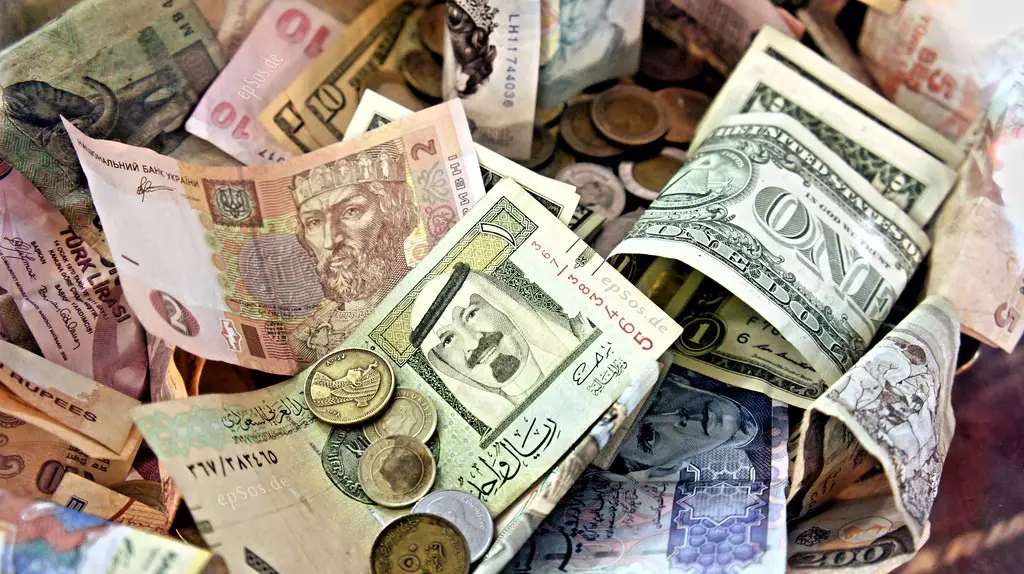 Like Texas Hold ‘Em poker, forex trading has sometimes been described as a game that takes minutes to learn but years to master. And many feel that the gambling comparisons do not end there. With the increase of trading apps and web platforms available for anyone and everyone to use, there is certainly no shortage of horror stories relating to individuals who have played the markets and lost. So the comparisons with being taken to the cleaners at the poker table are perhaps understandable.
Like Texas Hold ‘Em poker, forex trading has sometimes been described as a game that takes minutes to learn but years to master. And many feel that the gambling comparisons do not end there. With the increase of trading apps and web platforms available for anyone and everyone to use, there is certainly no shortage of horror stories relating to individuals who have played the markets and lost. So the comparisons with being taken to the cleaners at the poker table are perhaps understandable.
The reality of forex trading, however, is neither so grim nor so dramatic. Had you asked someone 25 or 30 years ago about the subject, they would have probably described it as a complex and specialized activity in which financial experts can make plenty of money. What has changed? Nothing, except that the ability for every Tom, Dick and Harry to start trading means there are suddenly a lot of “experts” out there with little or no knowledge of what they are doing.
Becoming a successful trader doesn’t take 20 years of practice, but it does require a basic grounding in the dynamics and indicators that shape the market. By following these simple guidelines, you’ll be able to join the fray with a far better hope of success than you’ll find in any casino!
Research the market
Forex is a complex beast. Not impossibly so, but you do need a basic head for figures, an understanding of how money markets work and, most important of all, an inquiring mind. Read all the articles and tutorials you can find; this forex wiki is the perfect starting point for both absolute beginners and those with a little background knowledge.
Choose your weapon
The smartphone era has brought about an age of unprecedented choice. Whatever you want to buy, sell, discuss or learn about, there thousands of online platforms to do so. A quick look on the Play Store or iTunes offers a mind-boggling selection of mobile trading apps; check through them and select your favorite, but a word to the wise is that MetaTrader, in either its MT4 or MT5 version is by far the most popular among traders and brokers.
Be patient
English poet Alexander Pope coined the phrase “fools rush in where angels fear to tread” more than 300 years ago. Since then, the phrase has been used by everyone from Abraham Lincoln to Bob Dylan, but some of us still haven’t learned. In forex trading, your biggest enemy is usually yourself, so avoid over confidence. Most of those apps we mentioned above include some form of practice or demo account, where you can make all your beginner’s errors without losing a cent. Make use of them, and learn from the experience.
Stick to the plan
If there is any quote that is cited even more than Pope’s, it is Benjamin Franklin’s one about “failing to prepare is preparing to fail” — and it’s worth taking to heart. Every trader needs to start out with a clear strategy, encompassing the currency pairs they will be trading, the time period they will hold position and the upper and lower buy/sell limits and stop loss settings. In some respects, that’s the easy part — the real challenge is sticking to it, even when things don’t work out for the best.
Here’s the point to remember: In creating your plan, you did so in the knowledge that there would be times that things would go against you. On those occasions, when your heart rate is elevated and you’re feeling disappointed and frustrated, is that really the time to start changing your strategy? Making some refinements in the cold light of day is one thing gut reactions to take revenge on the forex market are quite another.
Keep a journal
A perfect strategy is not going to be born overnight. As you become more experienced, there will be ample learning opportunities along the way, and you will become acquainted with a range of tools and indicators, as well as getting better at using them. Make sure you keep a detailed journal of every trade so that you can critically assess what went well and what didn’t. Feed these insights into your strategy going forward, and you’ll really start to get somewhere.
Know your limits
The final piece of advice can be taken in two ways. On the one hand, if you stay within predefined financial parameters, and follow the oft-quoted two-percent rule, you know that your finances cannot come to serious harm even if you get a trade spectacularly wrong.
Also, know your own psychological limits. Forex trading needs to be done with the head, not the heart. Whatever parallels people might try to draw, in the final analysis, this is no card game, so always approach it from a sound business perspective.
Photo Credit: epSos.de

Not only these tips work for Forex but for various fields in order to succeed in that particular business which we choose to. Thanks for valuable article.
Hi, Sabado. I read your article and it answered all my questions. Thank you!